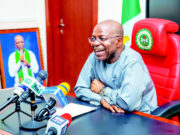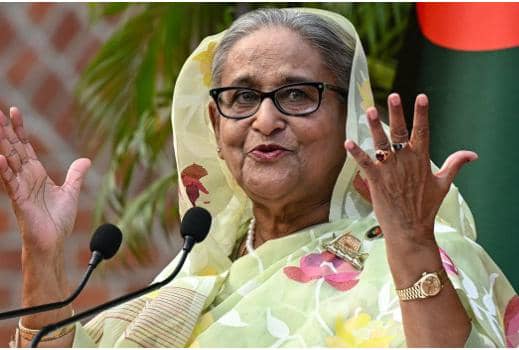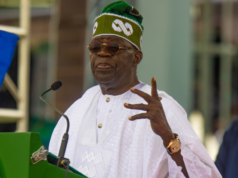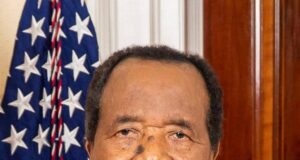Bangladesh’s Prime Minister Sheikh Hasina’s 15-year rule came to an abrupt end on Monday as she fled the country following weeks of violent protests.
The military has since announced it will form an interim government.
 Advertorial
Advertorial
Since early July, Hasina had struggled to control nationwide protests against her administration.
The situation escalated on Sunday, resulting in nearly 100 deaths, prompting Hasina to flee.
A source close to the prime minister confirmed she left by helicopter after protesters stormed her palace in Dhaka.
 Advertorial
Advertorial
In a televised address on Monday, General Waker-Uz-Zaman, Bangladesh’s army chief, declared that Hasina had resigned.
He stated that the military would establish an interim government to restore order.
“The country has suffered a lot, the economy has been hit, many people have been killed — it is time to stop the violence,” said General Waker, dressed in military fatigues.
 Advertorial
Advertorial
General Waker indicated he would consult with the president to form a caretaker government but did not specify if he would lead it.
He noted that he had engaged in discussions with main opposition parties and civil society members, excluding Hasina’s Awami League.
The scenes in Dhaka on Monday were chaotic and jubilant. Crowds waved flags and danced on tanks before breaking through the gates of Hasina’s official residence.
 Advertorial
Advertorial
Channel 24 broadcasted images of people looting furniture and books, with some relaxing on the prime minister’s bed and others destroying a statue of her father, Sheikh Mujibur Rahman.
Michael Kugelman, director of the South Asia Institute at the Wilson Center, warned that Hasina’s departure could create a significant power vacuum.
“If it’s a peaceful transition, with an interim set-up taking over until elections are held, then stability risks would be modest and the consequences would be limited,” he said.
“But if there is a violent transition or a period of uncertainty, that could risk more destabilisation and problems inside and outside.”
In response to the protests, Hasina’s son, Sajeeb Wazed Joy, urged security forces to prevent any unelected government from taking power, stating on Facebook, “It means don’t allow any unelected government to come in power for one minute, it is your duty.”
The protests initially started against civil service job quotas but quickly expanded into broader calls for Hasina to step down.
 Advertorial
Advertorial
The unrest reached a deadly peak on Sunday with 94 fatalities, including 14 police officers, marking the most violent day since the protests began.
Security forces had backed Hasina throughout the turmoil, which began in early July.
However, soldiers and police were seen standing down on Monday as vast crowds flooded the streets, with some estimates suggesting up to 400,000 protesters were present.
 Advertorial
Advertorial
The situation echoes Bangladesh’s political instability in January 2007, when the military declared an emergency and installed a caretaker government for two years.
Hasina, who has ruled since 2009, won her fourth consecutive term in January’s elections, criticized for lacking genuine opposition and marked by alleged abuses of power to quash dissent.
Former army chief General Ikbal Karim Bhuiyan called for the immediate withdrawal of troops and support for the protesters, criticizing Hasina’s government for the extreme suffering inflicted on the people.

“Those who are responsible for pushing people of this country to a state of such extreme misery will have to be brought to justice,” he said.

















